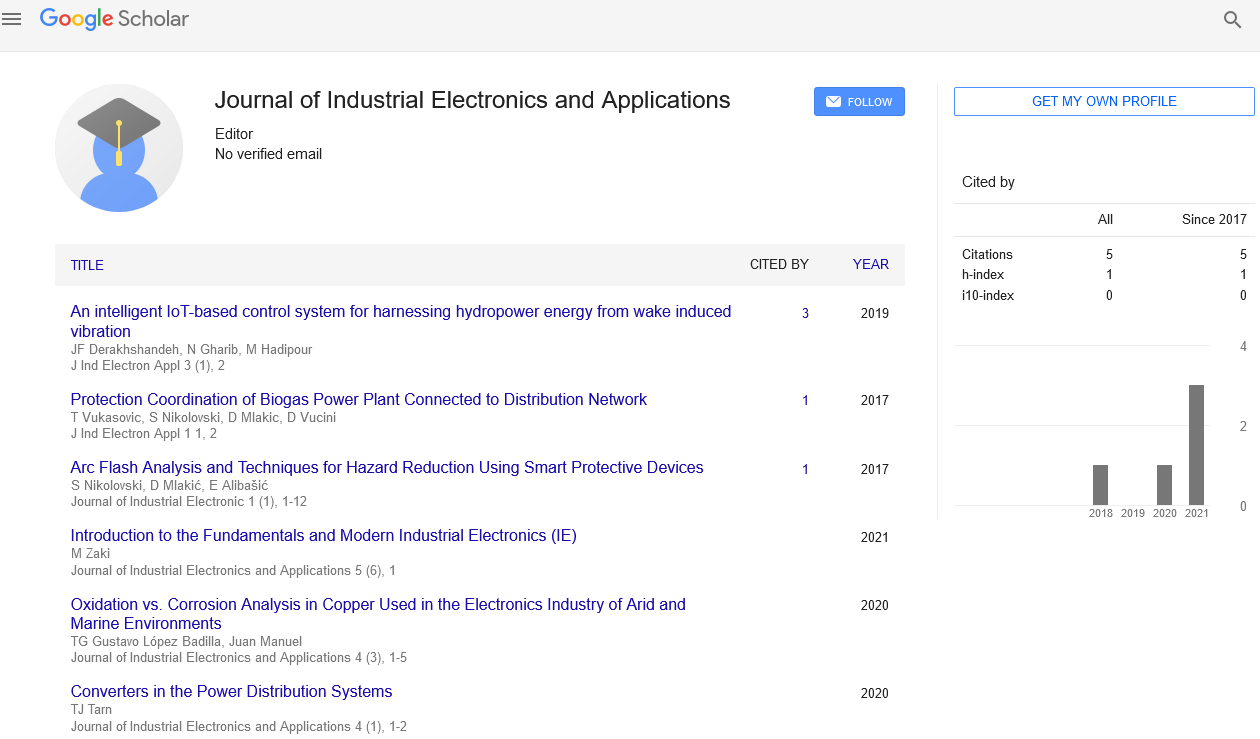Perspective, J Ind Electron Appl Vol: 7 Issue: 4
Hydrogen-Fueled Spark Ignition Engines: an explorative Perspective on Zero-Emission Propulsion
Vierens De Contino*
1Department of Electromechanical, Systems and Metal Engineering, Ghent University, Ghent, Belgium
*Corresponding Author: Vierens De Contino,
Department of Electromechanical,
Systems and Metal Engineering, Ghent University, Ghent, Belgium
E-mail: vierde.continob@UGent.be
Received date: 01 November, 2023, Manuscript No. JIEA-23-124009;
Editor assigned date: 03 November, 2023, PreQC No. JIEA-23-124009 (PQ);
Reviewed date: 20 November, 2023, QC No. JIEA-23-124009;
Revised date: 27 November, 2023, Manuscript No. JIEA-23-124009 (R);
Published date: 04 December, 2023, DOI: 10.36648/JIEA.1000048
Citation: Contino DV (2023) Hydrogen-Fueled Spark Ignition Engines: An explorative Perspective on Zero-Emission Propulsion. J Ind Electron Appl 7:4.
Abstract
As the world continues to navigate the transition towards sustainable energy solutions, hydrogen emerges as a promising candidate for clean and efficient transportation. Among the various applications, hydrogen-fueled spark ignition engines stand out as an innovative technology with the potential to revolutionize the automotive industry.
Description
As the world continues to navigate the transition towards sustainable energy solutions, hydrogen emerges as a promising candidate for clean and efficient transportation. Among the various applications, hydrogen-fueled spark ignition engines stand out as an innovative technology with the potential to revolutionize the automotive industry. This article explores the key features and benefits of hydrogen-fueled spark ignition engines within the context of sustainable propulsion.
Hydrogen as a clean fuel
Hydrogen, when used as a fuel, holds immense promise due to its zero-emission combustion. The combustion of hydrogen produces only water vapour and heat as by-products, making it a clean and environmentally friendly energy carrier. In contrast to conventional fossil fuels, hydrogen offers a pathway to decarbonize the transportation sector and reduce greenhouse gas emissions. Spark ignition engines, commonly found in gasoline-powered vehicles, operate by igniting a fuel-air mixture with an electric spark. The controlled combustion leads to the generation of mechanical power that propels the vehicle. Hydrogen-fueled spark ignition engines retain the basic principles of traditional gasoline engines but with notable modifications to accommodate the unique properties of hydrogen.
Key features of hydrogen-fueled spark ignition engines
Hydrogen possesses a high energy content per unit mass, making it an efficient fuel for propulsion. This characteristic ensures that vehicles can achieve comparable ranges to traditional internal combustion engine vehicles without compromising performance. The combustion of hydrogen with oxygen produces only water vapour and heat, resulting in zero emissions of harmful pollutants such as carbon dioxide, nitrogen oxides, and particulate matter. This contributes significantly to improving air quality and mitigating the environmental impact of transportation. Hydrogen has a rapid combustion rate, facilitating quick and controlled energy release within the engine. This attribute enhances the efficiency of the combustion process, translating into responsive and high-performance vehicles. Hydrogen-fueled spark ignition engines can leverage existing gasoline engine infrastructure to a certain extent. Modifications to the fuel injection system and combustion parameters enable the integration of hydrogen as a fuel in vehicles designed for gasoline combustion.
Challenges and research focus
Infrastructure development: A major challenge in the widespread adoption of hydrogen-fueled spark ignition engines is the limited hydrogen infrastructure. Establishing a robust network of hydrogen refueling stations is essential to support the growth of hydrogenpowered vehicles.
Storage and distribution: Hydrogen has a low energy density by volume, requiring efficient storage and distribution methods. Ongoing research focuses on developing advanced hydrogen storage technologies, such as high-pressure tanks and solid-state storage, to address these challenges.
Applications and future prospects
Hydrogen-fueled spark ignition engines have significant potential in the automotive sector. Leading automotive manufacturers are exploring hydrogen-powered vehicles as part of their sustainable mobility strategies. These engines offer a viable alternative for consumers seeking zero-emission transportation without the limitations of electric vehicles. Ongoing research in combustion science is crucial to optimizing the performance and efficiency of hydrogen-fueled spark ignition engines. Understanding the combustion characteristics of hydrogen and developing advanced combustion control strategies are key areas of focus.
Conclusion
Hydrogen-fueled spark ignition engines represent a promising frontier in the pursuit of sustainable transportation solutions. With their high energy density, zero-emission profile, and adaptability to existing infrastructure, these engines offer a viable pathway to decarbonize the automotive sector. As research and development efforts continue to address challenges related to infrastructure and storage, hydrogen-powered spark ignition engines are poised to play a pivotal role in shaping the future of clean and efficient mobility.
 Spanish
Spanish  Chinese
Chinese  Russian
Russian  German
German  French
French  Japanese
Japanese  Portuguese
Portuguese  Hindi
Hindi 